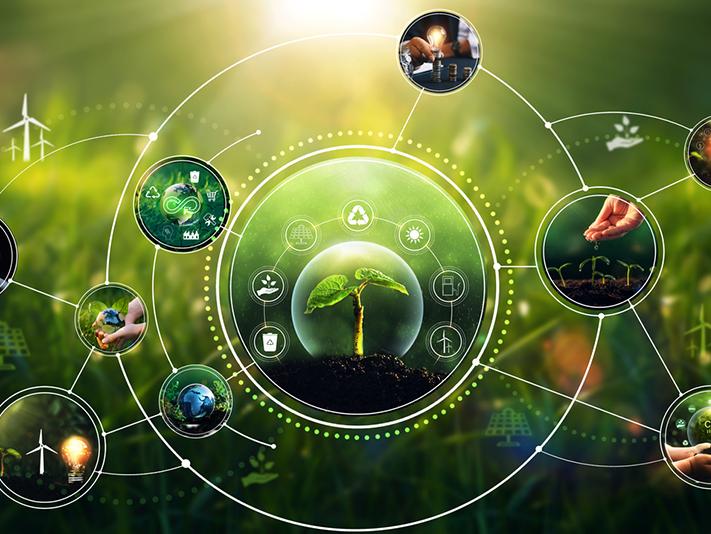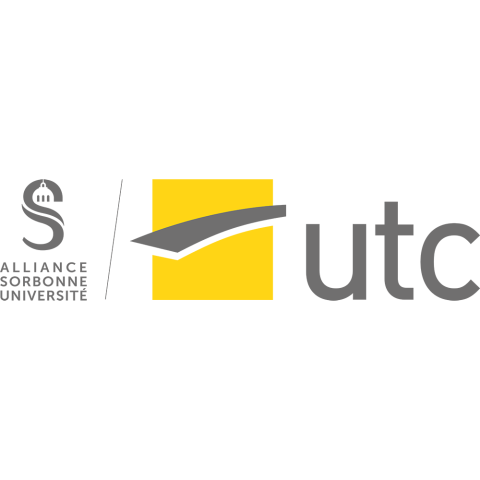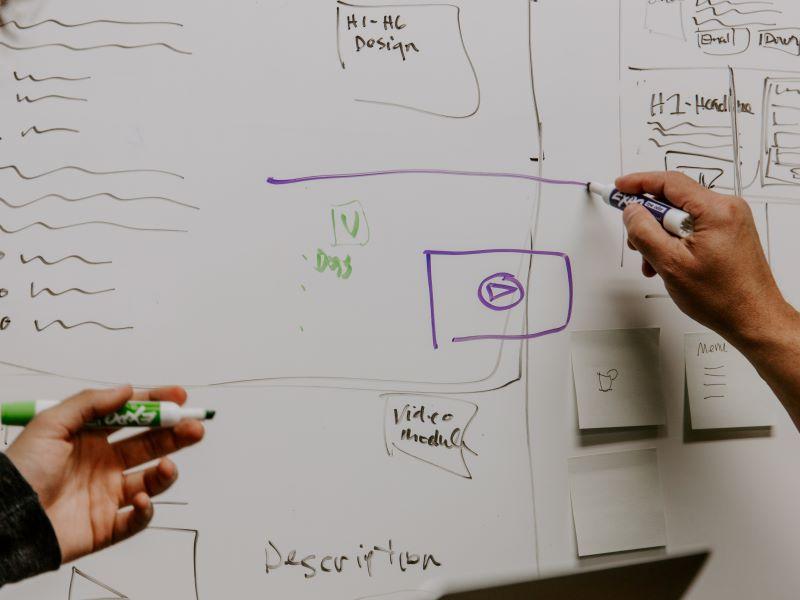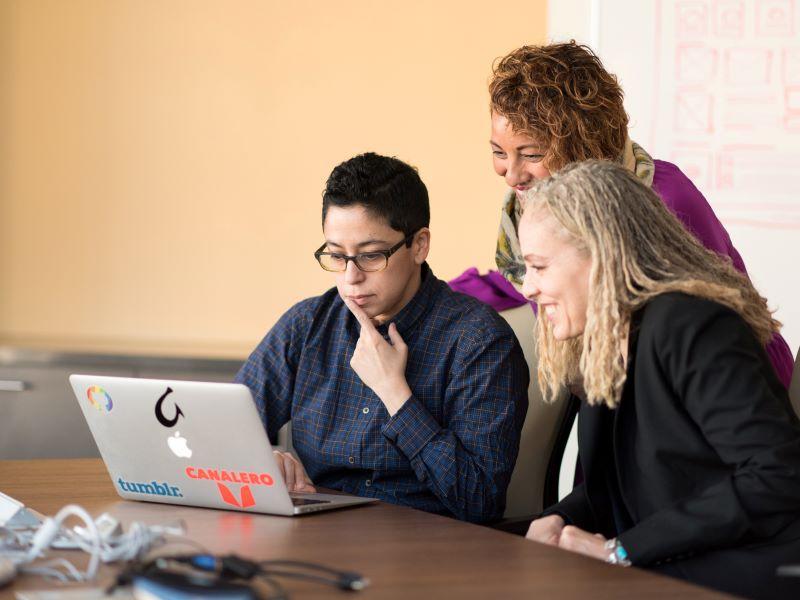
Teaming up with students to design sustainability education
Involving students as co-creators and mentors in sustainability courses can help address differences in their understanding as well as issues such as eco-anxiety
You may also like
Popular resources
Environmental challenges have become a ubiquitous topic in engineering education, and students themselves are helping to drive this subject into academic curricula.
Our university created a mandatory module on sustainability for first-year engineering students in 2021. While it is tempting to rely on standard lectures and massive open online courses (Moocs) to deliver such courses, especially with large cohorts (our course had 450 students in the autumn semester and 90 in the spring), these delivery modes often fail to catch students’ attention and can’t be easily adjusted to accommodate the huge disparity in their understanding of the subject. Eco-anxiety also emerges as a problem: how can educators discuss planetary boundaries without triggering emotions that learners cannot face alone?
- Resource collection: working with students to co-create their education
- Spotlight on a greener future for higher education
- THE podcast: universities aren’t too small to lead the climate crisis fight
We were tasked with creating this module. We believe that the challenge requires a more active and humane approach. Here are a few pieces of advice based on our experience that can be summarised as including students in the academic team, as mentors. In this case, the course management includes training and selecting those mentors.
Lean into the diversity of skills in your institution
“No poverty”, “zero hunger”...the labelling of the UN’s Sustainable Development Goals (SDGs) can be intimidating for faculty who feel that their research contributes minimally to meeting these global challenges. Very few of us are genuine experts in sustainable development, yet the need for sustainability educators is huge, so we have to develop our skills.
The good news is that sustainability requires input from all academic fields. Working as a team to define the curriculum and course materials decreases the burden on each individual and provides students with diverse, complementary views on each of the topics covered. Hence, the academic team should be diverse. This diversity should represent several necessary skills for achieving the SDGs, for example SDG 3 (good health and well-being) requires, among others, skills in healthcare and bioengineering, but SDG 11 (sustainable cities and communities) requires skills in urban engineering, and SDG 12 (responsible production and consumption) requires skills in customer behaviour and economy. We tried to have a panel of four faculty members, each coming from a different field and background.
Also, you know your students and their environment better than anyone else. As an experienced faculty member, your most precious expertise is your ability to identify local examples that they are familiar with.
Manage student differences and engage learners
Some of your students will have read all IPCC reports, while others have no idea what the term “biodiversity” means. Announce your objective clearly at the beginning of the course, and in resources such as handouts given to the students. If your course is a basic introduction to environmental challenges, as is the case for our course, the most advanced students might not learn a lot...in terms of science. However, from the feedback we obtained, our most advanced students declared that they learned something new in each one of the classes (if not new concepts, at least new facts, perspectives or examples).
They then become good candidates for student mentors. All mentors are trained between the summer and winter break via a one-week intensive course. Mentors are also trained by a psychologist to deal with reactions from students, such as anxiety, denial or lack of interest. They do not provide feedback in a formal and explicit manner but encourage participation and expression.
You can also engage your most motivated students in designing – and even delivering – some of the courses. Adding these new partners to your team makes it easier to offer your students personalised feedback during the semester.
Welcome emotions
Emotions, opinions and beliefs should not be excluded. Students are less likely to express these in front of their professors but may be more at ease to express them in front of other students. Hence, it is the mentors who host discussions every other week after each lecture. Small groups of up to eight students are invited to express their feelings and understanding of the topics covered in class. This time is dedicated to questions and allowing students to share their beliefs, hopes and concerns, and to building connections between what they learned and the future that they aspire to. It has been demonstrated that eco-anxiety decreases in individuals when they feel empowered. Thanks to the small group size, students who remain discouraged despite this can be identified and offered help and personalised support by the faculty or the university psychologist. All faculty are also trained to welcome emotions and opinions during the lectures.
Encourage projections toward sustainable practices
Mentors also offer sessions of serious games, such as Climate Fresk, which are powerful tools to introduce general concepts and foster discussion about individual and collective actions for climate mitigation or adaptation. We recommend the use of additional resources that are tailored for a student audience (in our case, the evaluation of the carbon footprint of the average French student).
Accept frustration
Engineering students like solutions more than they enjoy problems. While they would welcome courses on wind turbines or electric cars, they might be reluctant to hear about the biodiversity crisis or climate change. It might be the first time they have faced complex, systemic problems, and they might find this approach destabilising. Just as we tell them that it is normal to experience frustration (if the biodiversity crisis could be solved with a simple machine, would the planet be in its difficult situation?), we may have to accept that we, as teachers, cannot transform the views of all our students in a single semester.
This module has been offered since fall 2022 for four editions now, and the student feedback has been very positive. To conclude, with this experience, which is still new in our institution, we could no doubt say that introducing sustainability into university curricula requires a rethinking of pedagogical practices far beyond what is implied by introducing new content. In particular, we note that we need more than the usual silos (disciplinary, teacher/learner...) to raise awareness of issues that go well beyond us. These new pedagogical interactions seem to us to be as necessary as they are stimulating.
Anne Le Goff is assistant professor of biomechanics in the BMBI laboratory, Yacine Baouch is senior lecturer, Frédéric Huet is assistant professor in economics in the Costech laboratory, and Pierre Feissel is associate professor, all at Université de Technologie de Compiègne, France.
If you would like advice and insight from academics and university staff delivered direct to your inbox each week, sign up for the Campus newsletter.





Comments (0)
or in order to add a comment